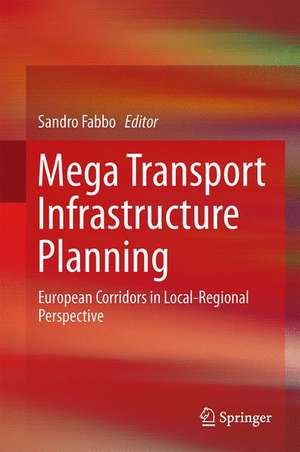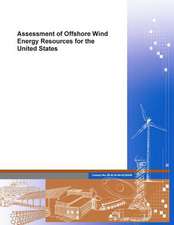Mega Transport Infrastructure Planning: European Corridors in Local-Regional Perspective
Editat de Sandro Fabbroen Limba Engleză Hardback – 28 sep 2015
| Toate formatele și edițiile | Preț | Express |
|---|---|---|
| Paperback (1) | 470.06 lei 6-8 săpt. | |
| Springer International Publishing – 29 oct 2016 | 470.06 lei 6-8 săpt. | |
| Hardback (1) | 645.60 lei 6-8 săpt. | |
| Springer International Publishing – 28 sep 2015 | 645.60 lei 6-8 săpt. |
Preț: 645.60 lei
Preț vechi: 759.54 lei
-15% Nou
Puncte Express: 968
Preț estimativ în valută:
123.55€ • 134.16$ • 103.78£
123.55€ • 134.16$ • 103.78£
Carte tipărită la comandă
Livrare economică 22 aprilie-06 mai
Preluare comenzi: 021 569.72.76
Specificații
ISBN-13: 9783319163956
ISBN-10: 3319163957
Pagini: 250
Ilustrații: X, 264 p. 94 illus., 28 illus. in color.
Dimensiuni: 155 x 235 x 22 mm
Greutate: 0.56 kg
Ediția:1st ed. 2015
Editura: Springer International Publishing
Colecția Springer
Locul publicării:Cham, Switzerland
ISBN-10: 3319163957
Pagini: 250
Ilustrații: X, 264 p. 94 illus., 28 illus. in color.
Dimensiuni: 155 x 235 x 22 mm
Greutate: 0.56 kg
Ediția:1st ed. 2015
Editura: Springer International Publishing
Colecția Springer
Locul publicării:Cham, Switzerland
Public țintă
Professional/practitionerCuprins
Towards a Local-Regional Perspective on Mega Transport Infrastructure Planning.- A Turning Point in Mega Project Planning and Appraisal Practices.- Spatial, Temporal and Typological Differentiation Along the Mediterranean Corridor.- Influence on Spatial Development by Building Ten Networks in Slovenia.- The Metropolitan System Along the Mediterranean Corridor in Northern Italy – The Problem Magnitude and the Need for a New Territorial Governance.- Spatial Planning And Multinational Implementation Of European Mega Transport Infrastructure – The Case Of The European Strategy For The Danube Region.- Territorial Cooperation And Multi-Level Governance In The Brenner Base Tunnel Project.- Action Planning For And Equality In Mega Transport Infrastructure Projects.- Governance Approaches To Raise The Renewable Energy Resource Share In Mega Transport Infrastructure.- Teknoss: A Territorial Knowledge Sharing System In The Poly5 Framework.- Preparing The Future – Visioneering In The Planning Process Of Mega Transport Infrastructure.- Step By Step Designing A Local Spatial Strategy On A Mega Transport Infrastructure Project.- The “Demarche Grand Chantier” In France – How To Reduce The Impacts Of MegaTransport Infrastructure Projects And Enhance Territorial Development.- The “Territorialisation” Of Mega Transport Infrastructure Projects – The Results Achieved By The Turin- Lyon Technical Observatory.- Integrating Mega Transport Infrastructures With The Complex Territories Of The Veneto Region – A Weighed Programmatic Approach.- The Baltic-Adriatic Corridor And Its Economic Importance For The Interested Regions.- The Conceptualization Of The Friuli Venetia Giulia Region As A “Territorial Strategic Platform” On The North Adriatic Sea Gateway.- Mega Transport Infrastructure Projects As An Opportunity For Local Cohesion.
Notă biografică
Dr. Sandro Fabbro is Associate Professor of Territorial Planning in the Department of Civil Engineering and Architecture at the University of Udine. Throughout his tenures as Visiting Professor at Northeastern University and the Global Urban Research Unit within the University of Newcastle’s School of Architecture, Planning and Landscape, he conducted research on regional planning at the strategic and regulative levels. He promoted SPHERA (Spatial Planning Harmonization for the European Regional Administrations) a research network of five Italian universities in charge of a “Research Program of National Interest” for the Italian Ministry of Research and University and he is currently President of the National Commission for Infrastructural Policies of the Italian Istituto Nazionale di Urbanistica. Dr. Fabbro is author of more than one hundred publications in international books and journals. He is a member of the Association of the European Schools of Planning (AESOP) and is often an invited speaker at its annual conferences.
Textul de pe ultima copertă
- Discusses EU transport policy and approaches to planning and implementation of European corridors across multiple territorial governances
- Examines the impacts of current development projects from policy, procedural, technological and environmental standpoints
- Illuminates lessons learned from local-regional projects, in order to lay out new and re-defined planning aims and tools
Caracteristici
Discusses EU transport policy and approaches to planning and implementation of European corridors across multiple territorial governances Examines the impacts of current development projects from policy, procedural, technological and environmental standpoints Illuminates lessons learned from local-regional projects to lay out new and redefined planning aims and tools

























